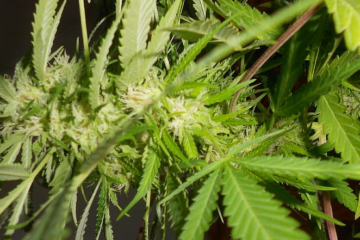The intersection of cannabis use and the rising costs of cancer care took center stage at a recent event hosted by the Mayo Clinic Institute for Value-Based Medicine®. This gathering, presented by The American Journal of Managed Care (AJMC), brought together experts to discuss the implications of cannabis legalization and the financial burdens faced by cancer patients.
Understanding Cannabis in Cancer Treatment
Scott Soefje, PharmD, MBA, and director of pharmacy cancer care services at Mayo Clinic, emphasized the importance of understanding cannabis as it becomes more prevalent in cancer care. With the legalization of cannabis products across the United States, healthcare professionals must be equipped to guide patients in their use.
- Patients often feel overwhelmed and “out of control” regarding their treatment options, leading to increased inquiries about cannabis for pain management.
- Marie Parish, a gastrointestinal oncology pharmacist, noted that she receives daily questions about incorporating cannabis into symptom management, particularly for chemotherapy-related side effects.
In Minnesota, where cannabis has been legal for medicinal use since 2014 and recreational use was legalized in 2023, the need for education on cannabis strains and their effects is critical. Parish explained the differences between cannabis sativa, indica, and ruderalis, highlighting how each strain can impact patients differently based on their symptoms.

The Role of Pharmacists in Cannabis Education
Pharmacists play a vital role in educating patients about cannabis products and their delivery systems. Parish pointed out that the method of consumption can significantly affect the onset and duration of action, which is crucial for managing symptoms effectively.
- There are three FDA-approved synthetic cannabis-related products for chemotherapy-induced nausea and vomiting (CINV), but many patients seek additional options.
- Various delivery methods, including smoking, edibles, and oils, can be tailored to individual patient needs.
Despite the growing interest in cannabis, the data supporting its use in cancer care remains limited. The challenges of conducting rigorous studies on Schedule I substances hinder the ability to provide definitive guidance.
Rising Drug Costs and Their Impact on Cancer Care
Shifting the focus to drug costs, S. Vincent Rajkumar, MD, discussed the alarming rise in cancer treatment expenses. He shared a poignant story about Alec Smith, a young man who died after being unable to afford insulin, highlighting the urgent need for reform in drug pricing.
- The median cost of new cancer drugs is nearing $200,000 per year, with prices continuing to escalate.
- Rajkumar pointed out that the U.S. experiences price increases for drugs that are not seen in other countries, where prices typically decrease after launch.
He proposed several policy changes to address these issues, including allowing Medicare to negotiate drug prices, easing the entry of generics and biosimilars into the market, and reforming pharmacy benefit managers to enhance transparency.
The Future of Cannabis in Oncology
As the discussion continued, the panelists addressed the complexities of the FDA’s accelerated approval pathway for cancer drugs. They noted that a significant percentage of drugs approved through this route were later withdrawn from the market, raising concerns about the effectiveness and cost implications of such approvals.
- Chelsee Jensen, PharmD, suggested that drug pricing should be tied to the quality-adjusted life years until confirmatory trials are completed.
- Irvine echoed the need for accountability, proposing that companies should face penalties for withdrawing ineffective drugs.
The conversation underscored the necessity for healthcare providers to engage patients in discussions about the costs of their treatments, including cannabis options. As the landscape of cancer care evolves, the integration of cannabis and the management of drug costs will remain critical topics for both patients and providers.



